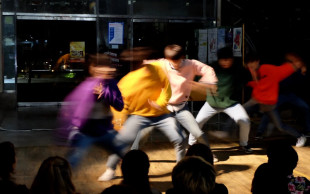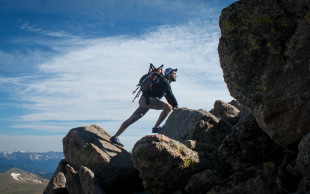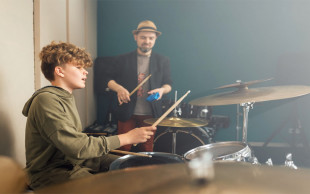“One opportunity, one window.” - Benjamin Twoon.
Benjamin Twoon is a man on a mission. The jet-setting Chief Operating Officer of Fundnel, a collaborative investment platform, had just touched down from a work trip in Hong Kong. STYLEGUIDE spots a window of opportunity and sits down for a quick coffee chat with the man before he heads off to Indonesia for another meeting.
What inspired you to become an entrepreneur and start Fundnel?
Let me tell you my story, alright? I am the accidental entrepreneur. In school, I showed zero entrepreneurial talent or flair. I studied very hard in school, and always wanted a corporate job.
But there were two things that happened to me that really woke me up.
The first is that regulations really killed the financial industry. When I first got an opportunity to join a fund, it had to be closed down because of the Dodd-Frank Act so banks cannot use proprietary money to invest into private equity and venture capital. Traders also couldn’t make as much money through proprietary trading as the markets were impacted. I started at Citibank and saw how regulations changed the financial industry from a revenue-growing business to a cost-cutting business. All the projects I was working on were essentially the same - monetize what you can and cut costs.
So I wanted to be in a revenue growing business, but I ended up in cost-cutting. Hence I decided to enter the oil and gas industry. Back then, oil prices were $80, $90 before it collapsed. Again, why did oil prices collapse? Technology. Hydraulic fracturing. You can see the downstream effect on the oil and gas, maritime and related services industry which were cutting tens and thousands of people.
Technology! Crazy, disruptive potential!
So then my cofounders reached out and said, "Why don’t we use technology to democratize finance?".
And back then, there was something called the Jobs Act to jumpstart businesses and startups in the US, something President Obama put in place to reinvigorate the economy. And we thought, "If we use the US as a leading indicator of how startups and the financing ecosystem will evolve, then we should invest time into this potential as well."
That's how I ended up in entrepreneurship.
Purely accidental. The idea makes sense, and at that point of my life the opportunity cost was relatively lower.
So I thought, "Hey, give it a shot. Six months. If it doesn’t work out, go back to work."

How has Fundnel evolved in the three years since it started?
We started with crowd funding, originally working with early-stage companies with technology only as a shop front. With feedback from the market, we evolved to work on bigger companies in a growth stage and our technology has since grown to be more efficient.
Why go for these companies?
It was because of feedback from our investors, they wanted people who could show results.
Our results validates the way we screened companies.
We have Venture Capital (VC) like metrics. We look at total market capitalisation, the team, projected earnings among others. A deal can take three-months, or even six-months.
It was tough. But slowly, we built.
Screening used to take three, four weeks back then. Now, it’s very quick. Tell me your numbers, and I put in my system, that’s the first cut.
Quantitative then qualitative, then enhanced (screening).
It’s even more robust than some Venture Capital funds. Main investors do their own due diligence too of course; we do not replace the need for investors to do their own due diligence.
The kind of opportunites we think are good, are based on data we have today.
We are part data, part funding company. Huge focus on data.
Every deal, we keep the data with 1500 companies in past 2 years and counting.
Essentially, we've built a platform that enables businesses to tap on alternative funding for the long run, a wellspring for companies to keep coming back and continue growing through a credible and effective platform with serious investors on board.
Compared to crowdfunding platforms like FundedHere and Kickstarter, how would you describe Fundnel in the crowd-investing space?
Crowdfunding platforms like Kickstarter and FundedHere work on much earlier stage companies. Kickstarter focuses on ideas. Fundedhere, another crowdfunding platform, focuses on early-stage equity investing for accredited investors, typically high networth individuals. At Fundnel, we give access to growth companies with our focus in a different space: S$3 to 20 million dollar businesses.
What would you say is the strongest competitive advantage of Fundnel?
Data, People, Processes. Data is your north star, guiding principles. People as vessels to execute. Processes to ensure consistency and professionalism.
We’re now in six markets, with over thirty people, and it is difficult to work like a startup.
So we need good people. We need good results. Data leading the way, we set out our principles and processes, and get deals with the discipline of putting ourselves in the front line and making sure we produce results.
Closing deals is the hardest thing in this business. We invest a lot of time to build our connections and networks - a lot of time, pain and effort - technology helps simplify and make the process more efficient.
What is the greatest success you've experienced at Fundnel?
I am thankful that we have a team that really believes in what we're doing. It's not even about how many deals we've done, it's not even about the tech, it's not even about who's who.
It's about people who believe in you as much as you believe in them, and together, believe in the company.
People that stay with you, even though you can't pay them a lot because you can't afford to. People who work long hours, work weekends, come back on public holidays not because you ask them to, but because they want to.
That is success. Real success.

You and Mr Jeff Tung donated S$1 million to a new entrepreneurship fund at SMU in 2015. Could you share more about that?
The funds are used purely for advocacy purposes, as a platform to grow the spirit of entrepreneurship. We also work very closely with SMU Institute of Innovation and Entrepreneurship as they’re very aligned with our goals.
On one hand, what we give to aspiring entrepreneurs is real life experience of what it's like to pitch in a competition and try to get funding while on the other, we will really "whack" the entrepreneurs. This platform is intended for students to learn and figure things out at a low opportunity cost.
The awareness and attention that has been given to entrepreneurship through this initiative has been great. I think that in two years, we have changed how entrepreneurship is being viewed in SMU.
I think a lot of people have been inspired to do more in terms of entrepreneurship. There are more people inspired to give this a shot even though it may not be what they want or are inclined towards. That's the point. It's not about trying to find the next Mark Zuckerberg, there's a place for that. Competition. It's about trying to groom the people that could be Zuckerberg, but they never know.
We want students to give it a try. Doesn’t matter if you fail, try again.
If you're not suited for this, you can always do something else.
At least you know and you tried.
At least you gave it a shot.
What would you say is your aspiration and purpose in life?
To pay it forward and leave a legacy. There’s only that much I can do in 24 hours, 7 days a week, not knowing at this rate how long I am going to actually live in this world. But to pay it forward and to empower. This is where I find meaning in my work. I really believe in what we're doing and the financing that we're providing to SMEs, and startups, that enables them to create more value. I want to leave a legacy by giving them a platform that they can continuously go back to, to grow and to create more value.
So it is really the ripple effect, the multiplier effect, I think that's what I believe.
I hope that this can really leave a legacy for businesses to continually leverage on this platform we're building to create more good for society, because I really believe that businesses will bring value to society. I want to support businesses that give value, and bring value, to people.
Personally as well, my greatest life aspiration would be to empower the next generation of change makers to make a difference – thus my personal belief in education, mentoring and paying it forward.
Business-wise, it would be to build the region’s first private exchange. Being able to work on something that is aligned with my purpose greatly inspires and motivates me in life. It helps me wake up every morning, even with so little sleep, even with it being so tough.
What was the biggest challenge you've faced?
To be honest, the biggest challenge I face...is to fail. Because for me in school, I never really failed before. Always a good student, do very well. And accepting failure has been one of the biggest challenges so far that I faced...how do I get comfortable with failure and sub-optimality?
Some may say failure is good. But for me, failure is bad. Failure is very bad.
And it's how you accept it and move on, that's the most important thing.
So for me the biggest challenge was adopting that mindset - firstly, how do you just accept failure and move on? Initially when I first failed, it took me a long time to get over it. Now it's very fast.
Fail, move. Fail, move.
From corporate coming into this startup environment, from never having failed - being at the top - to acknowledging that you're just not good enough and trying to rebuild.
So I personally don't celebrate failure, but it drives me instead.
Failure is a great teacher because once you fail, you remember for life.
You succeed, you forget.
Fail fast, and pick yourself up faster.
What is the most interesting life experience you’ve had so far?
I gave up an internship at a bulge-bracket bank that was very reputable to go to Indonesia.
Turned out to be the best decision I’ve made.
I had promised my friend to go to Indonesia, and even though he insisted I take the internship as it was the most obvious beneficial choice, it was a matter of principles to me.
You can lose money, you can lose opportunities but you cannot lose your credibility.
And why was it the most interesting life experience I’ve had?
I had switched a desk job in London for a place in the coal mines of Indonesia.
We had to take a 1-hour speedboat ride in the high seas, trying to avoid VLCCs and big waves, just to get to an island where the mine was at. I rode a bike in the jungles of Sumatra without a license, with snakes and wildlife aplenty, while working with the locals without speaking a word of the language.
The friendships that were forged in this very rough industry were memorable – people from different walks of life, miners, gangsters (security providers), villagers, government officials; some of these people were very helpful to Fundnel when we first grew into Indonesia
It's about how you join the dots throughout experiences in life.
How do you see your life like in 1 year, 5 years and 10 years time?
For the first year, all of my time is still devoted to work and family at this point. I squeeze out moments in the day to tell my loved ones that I care, and it's building the business with a strong foundation of my family’s unwavering support that gives me my daily dose of purpose.
In about 5 years, I will spend time empowering people and nurturing leaders in the company. As much as I see myself pushing frontiers and growing the business, people are at the heart of everything we do. This also creates more time for me to think about the future of what we do at Fundnel.
After 10 years time, I’d like to devote most of my time to paying it forward. Knowing myself, as much as I’d like to retire by 40, I crave meaningful work as a means of growth and as an outlet to channel my energy. The intersect of both would be to teach, and possibly set up a school for entrepreneurship in a developing country to equip youth/young adults with basic skills and micro-financing.
If you could give your younger self one piece of advice, what would it be?
Talk less, do more. I wished I did a lot more, I studied too much in school. Grades counted for far less in the end. However, I did do a whole lot of internships and those experiences were far, far more valuable than my studies. As my favourite life motto by George Bernard Shaw goes, “Life isn't about finding yourself. Life is about creating yourself”.
For more fascinating stories & articles, like us on Facebook and follow us on our Instagram @styleguidesg.

















